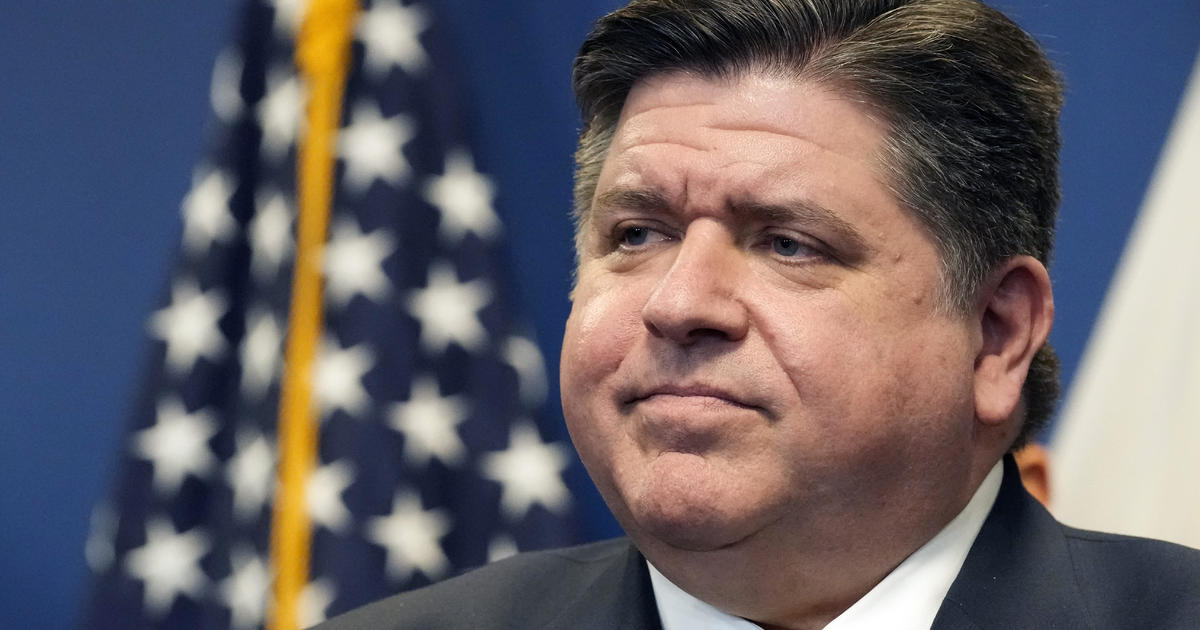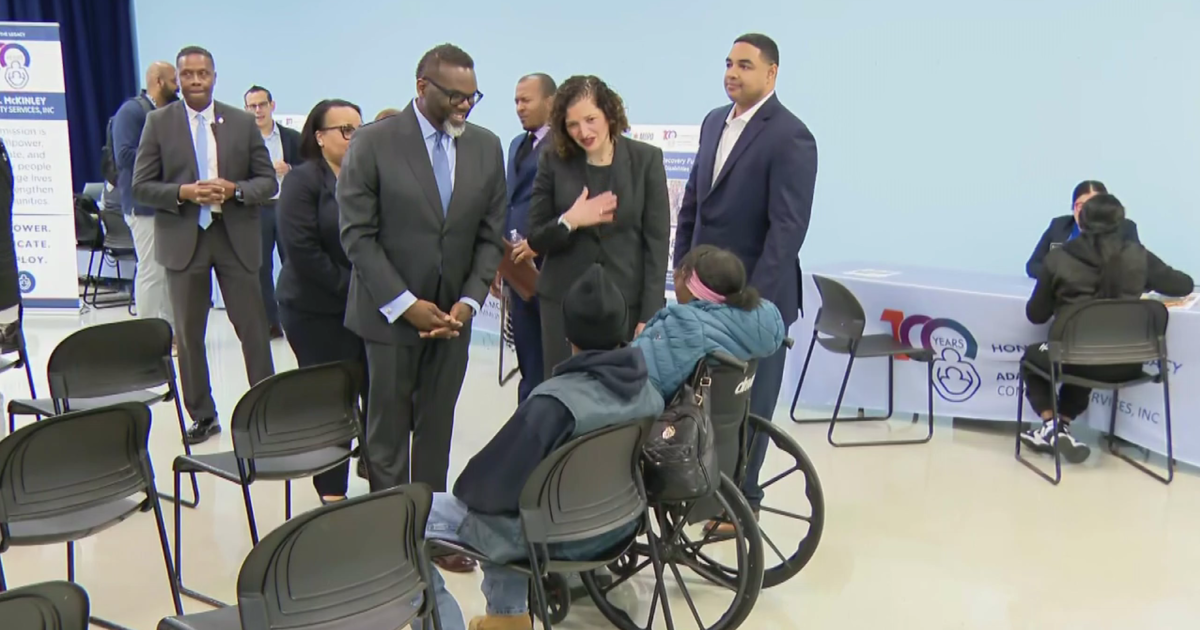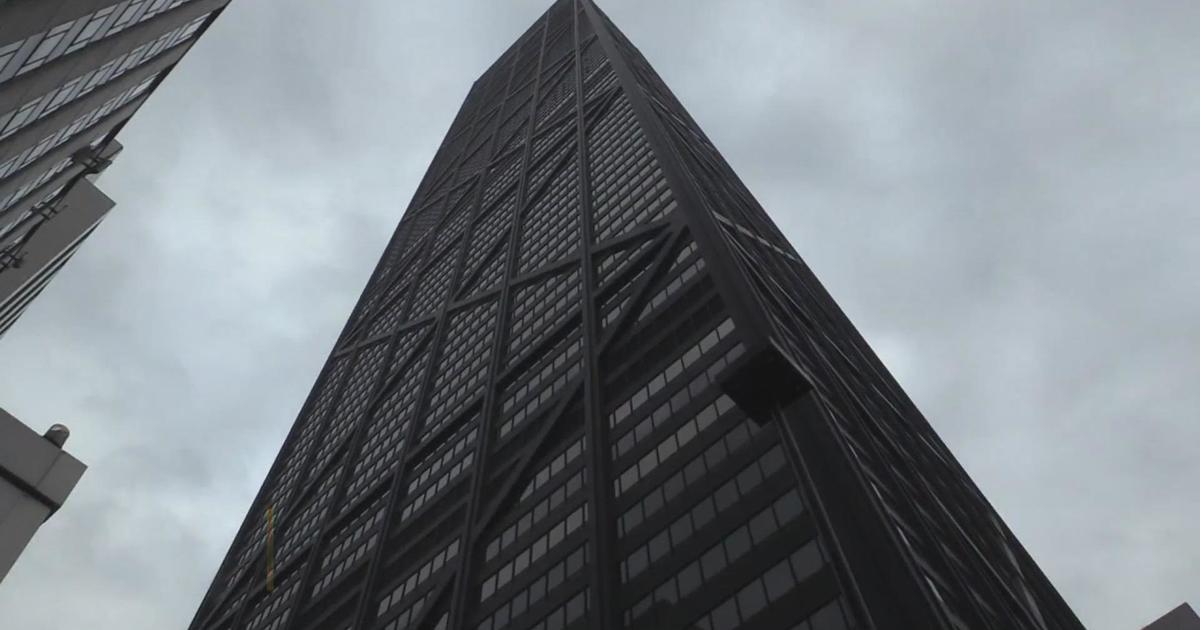Finance Committee Signs Off On Mayor Lori Lightfoot's $94 Million Property Tax Hike Plan, Rest Of 2021 Tax Plan
CHICAGO (CBS) -- Mayor Lori Lightfoot's proposed $94 million property tax hike for next year cleared a key hurdle on Wednesday, as the City Council Finance Committee voted in favor of the tax increase, and a bevy of other taxes to help close a $1.2 billion budget shortfall.
The 21-12 vote by the Finance Committee signals Lightfoot likely has the votes to pass her budget plan through the full City Council, possibly as soon as next week.
The biggest question at Wednesday's meeting was the mayor's proposed property tax hike, as the Finance Committee voted on a $1.63 billion property tax levy for 2021. That includes a $94 million property tax hike, which the mayor has said will amount to a $56 increase in the property tax bill for the owner of a home valued at $250,000.
At a public hearing on the property tax hike on Tuesday, several aldermen pushed back on the mayor's plan, and urged her budget team to come up with way of avoiding the property tax increase.
However, Lightfoot was able to wrangle enough votes to pass the property tax hike out of the Finance Committee, and she'll need only five more votes out of the remaining 17 aldermen who have yet to vote on it to get the tax increase through the full City Council.
The "no" votes on Wednesday included Aldermen Brian Hopkins (2nd), Anthony Beale (9th), Patrick Daley Thompson (11th), Marty Quinn (13th), Edward Burke (14th), Raymond Lopez (15th), Matt O'Shea (19th), Silvana Tabares (23rd), Anthony Napolitano (41st), Brendan Reilly (42nd), Tom Tunney (44th), and Debra Silverstein (50th).
After the committee vote, Mayor Lightfoot thanked the aldermen who voted in favor of her revenue plans.
"We've done a lot of work over these past couple of weeks in particular of working hard and listening to our partners in City Council, listening to our partners in organized labor, and the changes that have been made to the budget over time really reflect that listening, that learning in a partnership," she said. "The needs in our community, particularly in this year, are so great that we have to rise to the occasion and meet the challenges that this very difficult year has presented."
Despite the controversy over the property tax hike, debate on Wednesday was relatively brief, lasting less than an hour before aldermen voted.
Ald. Walter Burnett (27th) praised the mayor and her budget team for agreeing to a number of changes to her budget plan after learning to concerns from various aldermen. Lightfoot canceled plans for 350 layoffs as part of her budget plan, amid stiff opposition from aldermen and labor unions. The mayor's office did not provide specifics on an agreement with the Chicago Federation of Labor to avert the planned layoffs, but according to published reports the city instead would borrow against future marijuana tax revenue to make up for the $15 million in savings expected from the planned layoffs.
Lightfoot also agreed to a $10 million increase in funding toward violence prevention programs, for a total of $36 million in 2021,as well as an expansion of her proposed pilot program to have both mental health professionals and police respond to emergency calls from people suffering a mental health crisis.
"I think this has been the most active budget that we've ever had. I've never seen my colleagues work so hard with trying to come up with solutions," Burnett said.
Lopez, one of Lightfoot's most outspoken critics on the City Council, however, raised concerns over the mayor's reliance on $1.7 billion in debt refinancing to save $450 million on the 2020 budget and $501 million on the 2021 budget.
"We're running out of revenue to keep borrowing against, in my opinion. This tax levy is $1.6 billion. This year's debt is more than half that," Lopez said. "At what point do we reach a tipping point where we've actually borrowed out more than we can raise and repay in a single year?"
Lopez noted even the mayor's plan to avoid layoffs relies on borrowing against future marijuana tax revenue.
"But what happens for next year for those 350 individuals? At what point do we run out of borrowing options because we simply do not have the revenue sources coming in to generate more bonds to do more borrowing?" he said.
In addition to the $94 million property tax hike for next year, the mayor's budget plan includes annual property tax increases going forward tied to the consumer price index, although aldermen must approve those changes each year.
Her budget plan also includes a laundry list of new revenues from various increases or changes to existing taxes:
- Increasing the city's gasoline tax from 5 cents per gallon to 8 cents per gallon, generating an estimated $10 million in revenue.
- Raising the city's tax on cloud computing services from 7.25% to 9%, bringing in an additional $15 million in revenue.
- Ending the practice of sending rideshare fees to subsidize the CTA, and keeping the $16 million in revenue within the city budget.
- Eliminating a 50% tax credit offered to rideshare drivers to make trips to "underserved areas," which the mayor's budget team said does not actually create an incentive to provide those trips, and benefits only the companies themselves. The move will save the city $6 million.
- Adding 750 more parking meters to bring in another $2 million in revenue.
- Tying commercial refuse container fees to annual increases in the cost of living to create $270,000 in additional revenue.
- Increasing harbor permit fees and fines for $15,000 in new revenue.
The budget also includes a plan to begin issuing $35 speed camera tickets to drivers caught going 6 mph to 9 mph over the limit. Some aldermen had argued the city should instead install more speed cameras to catch more drivers going 10 mph or more over the limit.
The mayor declined to speculate if there would be enough votes in the full City Council to pass her full budget plan.
"We're going to continue to work hard. We're going to continue to listen to our partners in the City Council. Our residents expect us to lead. They expect us to step up and make hard decisions, particularly in difficult times like these," she said.
Also From CBS Chicago:
- Neighbors In Horror After 3 Hunting Dogs Take Over Block In Ashburn, Maul And Kill Shih Tzu
- Thanks To A Simple Facebook Post, Pilsen Teen Not Only Finds Virtual Special Needs Program At Park District, But Also Gets To Star In Furniture Commercial
- U.S. Customs And Border Protection Seizes More Than $1.6 In Fake Money Headed To Joliet From Ukraine



